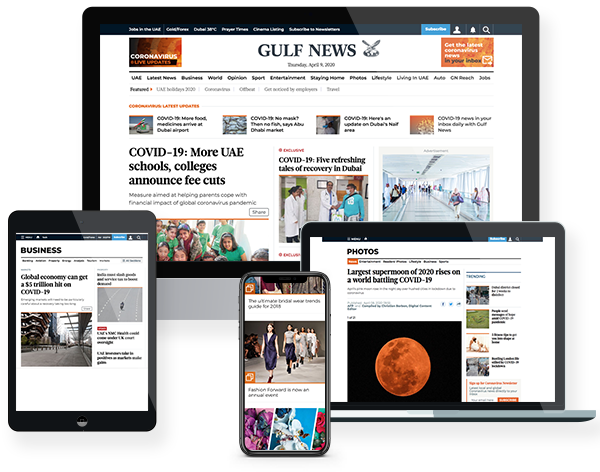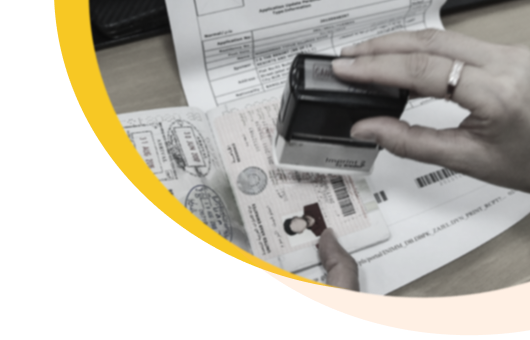
Dubai: With some UAE airlines beginning to implement the new influenza vaccination rule for passengers flying from the country to Saudi Arabia for Umrah, hospitals have reported an increase in demand for flu vaccine.
Earlier this week, the UAE Ministry of Health and Prevention (MoHAP) declared the influenza vaccination mandatory for all travellers heading to perform Umrah and Hajj, emphasising the importance of adhering to all vaccination protocols and health precautions.
The ministry’s announcement stated that Umrah travellers would be required to show proof of their influenza vaccination starting March 26, 2024. The ministry also recommended vaccinations to be administered at least 10 days before departure to guarantee vaccine efficacy and immunity.
Following the announcement, Etihad Airways on Thursday said all passengers, except certain categories, travelling from Abu Dhabi to Jeddah will need to have an influenza vaccination certificate.
“In line with regulations applied by the health authorities in the United Arab Emirates, from Tuesday 26 March until further notice, all Etihad Airways guests travelling from Abu Dhabi to Jeddah will need to have an influenza vaccination certificate,” the Abu Dhabi airline said in a statement to Gulf News.
Read More
- Why UAE students should get a flu shot before schools reopen
- It's really never too late to get a flu shot, Dubai launches vaccinatation drive against influenza
- Abu Dhabi authorises pharmacies to administer seasonal flu vaccine
- UAE: Flu shot mandatory for Umrah, Hajj pilgrims from March 26
- Get your free shots as seasonal influenza vaccination campaign begins in Abu Dhabi
It said the certificate needs to be presented at check-in for inspection prior to flying in either paper hardcopy or on an approved UAE digital health application.
Explaining the categories of passengers who are not required to provide the vaccination certificate, the airline said: “The regulation does not apply to guests in transit whose journey does not originate in the UAE, to residents of the KSA who hold proof of residency, or to those arriving into the UAE from Jeddah.”
“The safety and security of our passengers and crew remains our number one priority,” it added.
Rush at hospitals
Meanwhile, multiple private healthcare groups told Gulf News that their facilities have observed an increase in demand for influenza vaccinations over the past few days, particularly from individuals preparing for Umrah.
“The announcement has prompted many individuals, especially those planning to undertake Umrah this Ramadan, to prioritise getting vaccinated to ensure compliance with the requirements set by the authorities,” said Dr Lulu Azeez A, specialist, Internal Medicine, Aster Hospital Al Qusais
Dr Saira Haider, general practitioner, Family Medicine, Burjeel Day Surgery Centre, Al Reem, said: “As vaccination is now mandatory for travel, some patients are seeking vaccination services on short notice, as they must update their vaccination status on the Al Hosn app prior to departure.”
Dr Saira Haider, general practitioner, Family Medicine, Burjeel Day Surgery Centre, Al Reem, said: “As vaccination is now mandatory for travel, some patients are seeking vaccination services on short notice, as they must update their vaccination status on the Al Hosn app prior to departure.”
Dr Jyothish George, specialist dermatologist and director of Homecare services and Vaccination with Prime Hospital, said: “Though many people have taken the flu vaccine before, our facilities are seeing an increase in flu vaccine related enquiries.”
Doctors pointed out the need for those wishing to perform Umrah during Ramadan to get vaccinated immediately to meet the 10-day validity requirement for the vaccine certificate which is to ensure that the passengers have gained immunity against the flu viruses.
“It is important to note that optimal immunity development typically requires at least 10 days after vaccination. Therefore, individuals planning to travel within the next two weeks are strongly advised to receive their vaccinations promptly,” said Dr Haider.
Echoing the same, Dr Azeez, said: “It is advisable for pilgrims intending to perform Umrah during Ramadan to promptly get vaccinated to meet the 10-day validity period for the vaccine certificate. Given the rush and the necessity to ensure adequate protection against influenza, pilgrims should not delay in receiving the vaccine. Early vaccination ensures sufficient time for the body to develop immunity against the flu virus and for the vaccine certificate to remain valid throughout the pilgrimage period.”
Special arrangements
Healthcare groups said they are fully equipped to handle the increased demand and have ample stocks of vaccines. They said they are also making special arrangements to meet the sudden rush.
These include walk-in vaccinations, homecare services, increased staffing, extended hours, and streamlined scheduling to support efficient vaccine administration.
Varying cost
The cost of the flu vaccine at private healthcare facilities varies depending on the specific vaccine formulation and any promotional offers or discounts available at the time of vaccination.
While Emiratis get it for free and expat residents can receive the flu vaccine for Dh50 at 12 ambulatory health centres at Dubai Health, generally, the cost ranges from Dh75 to Dh120 at private healthcare facilities.













